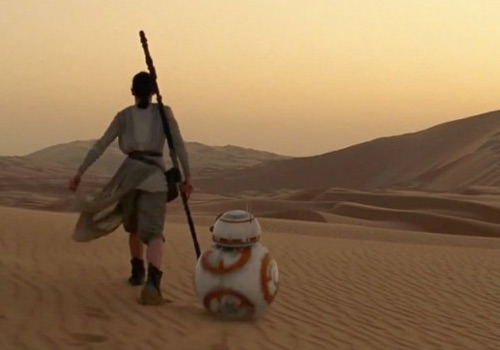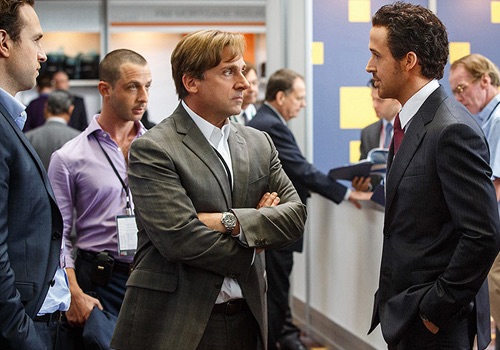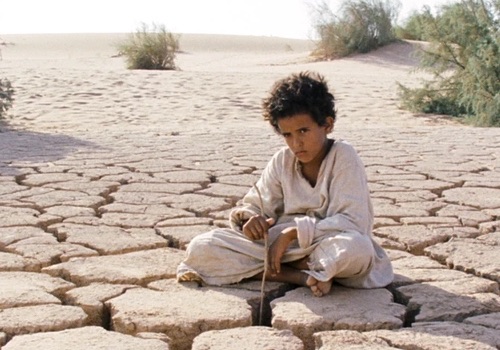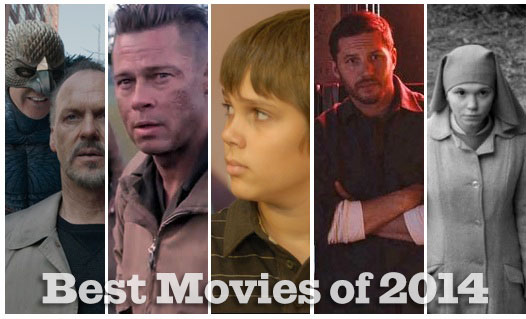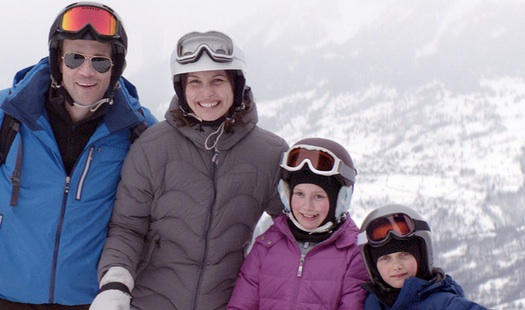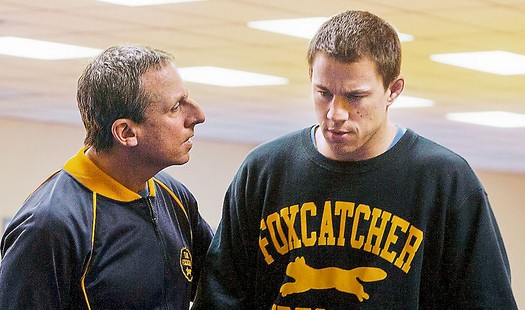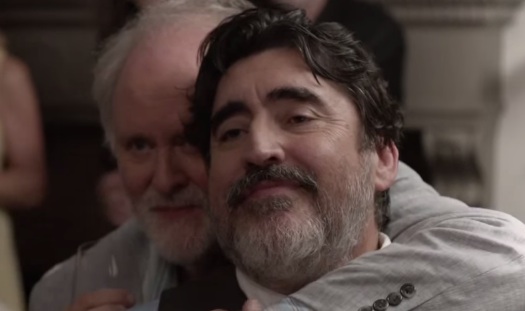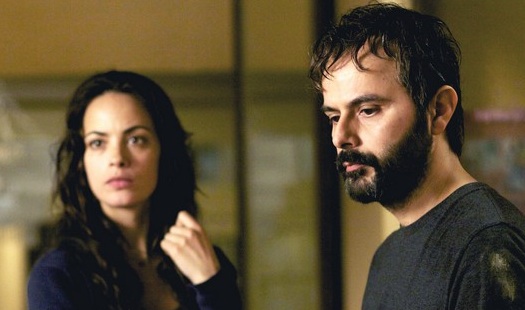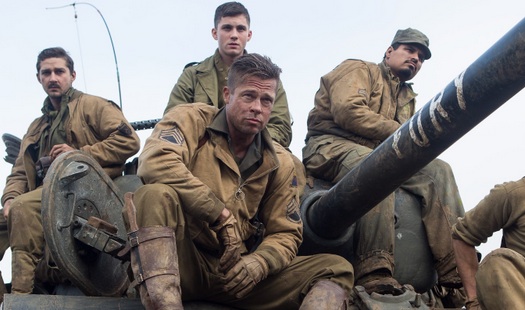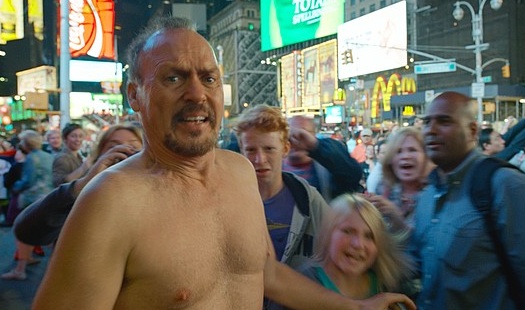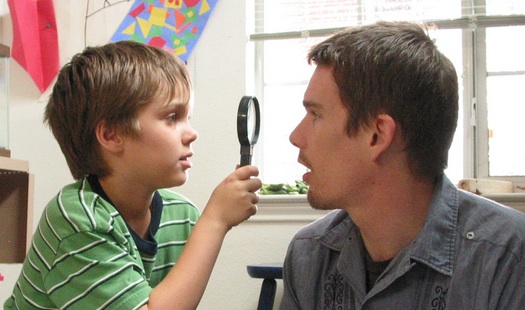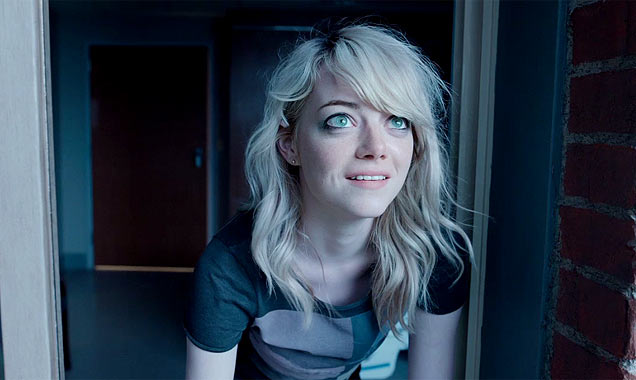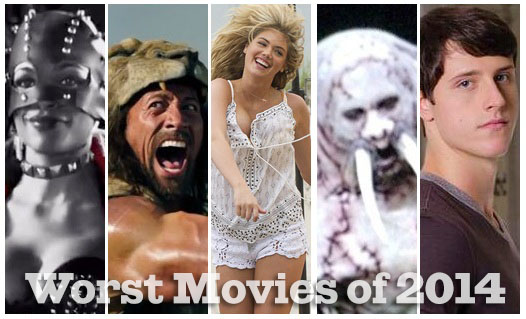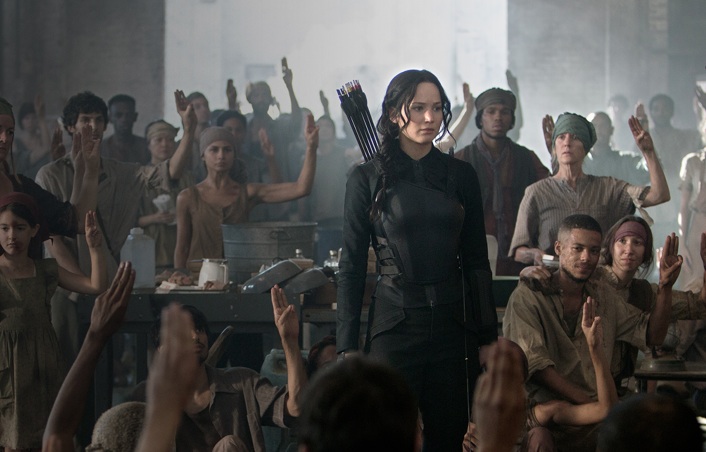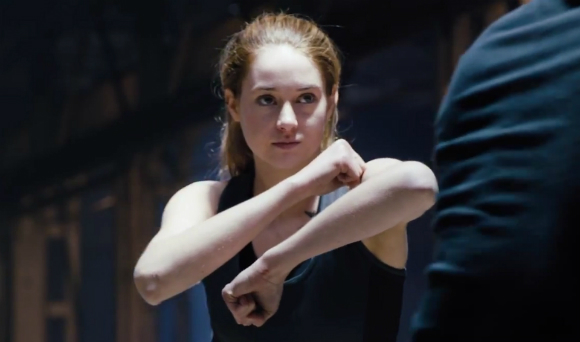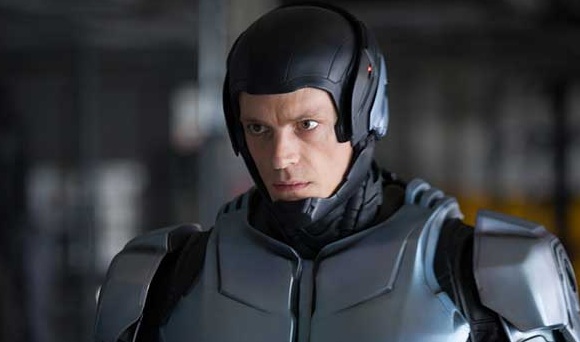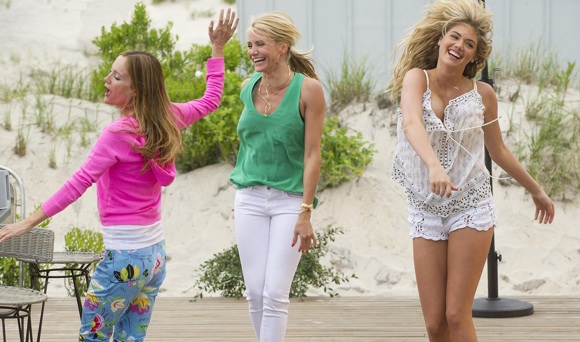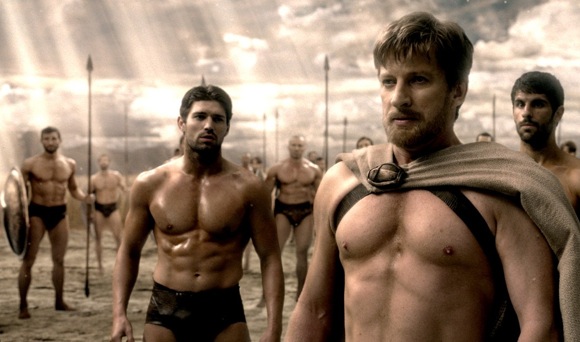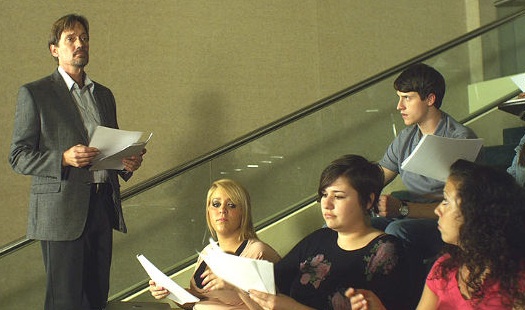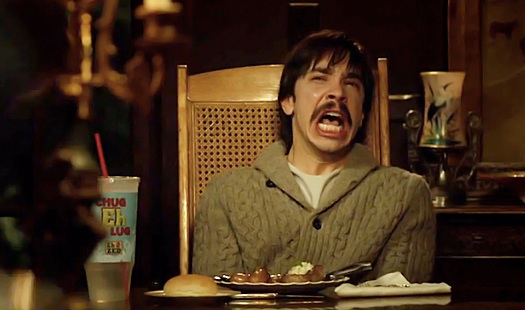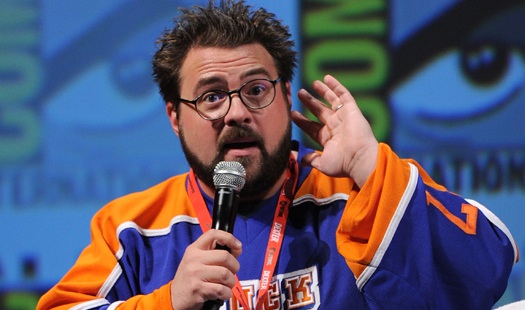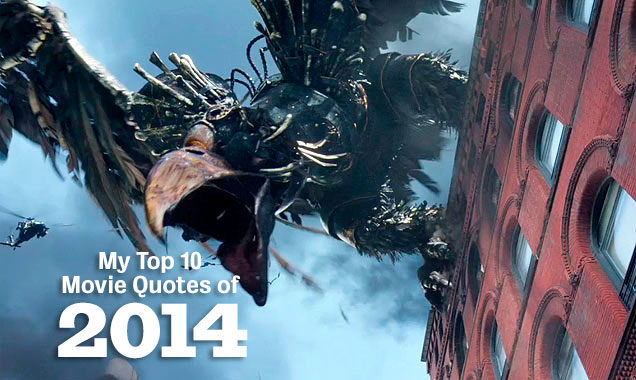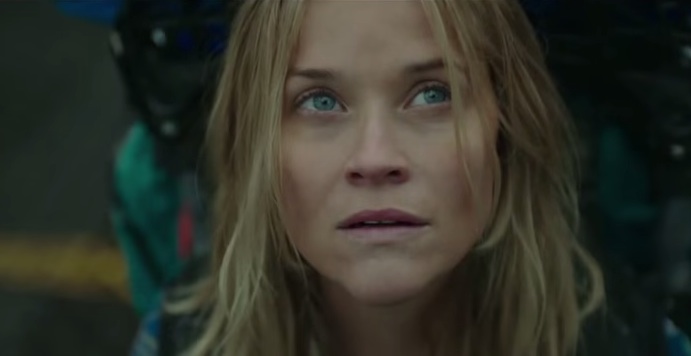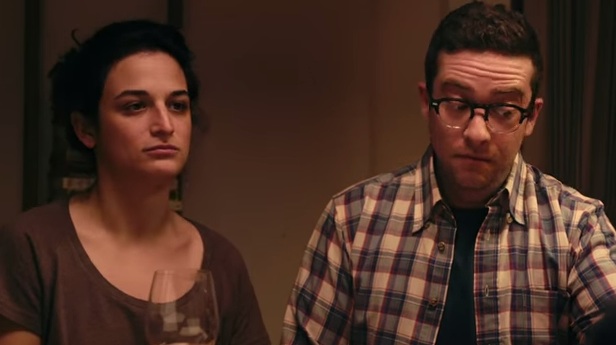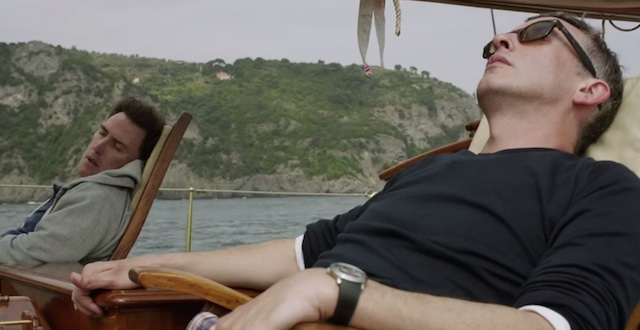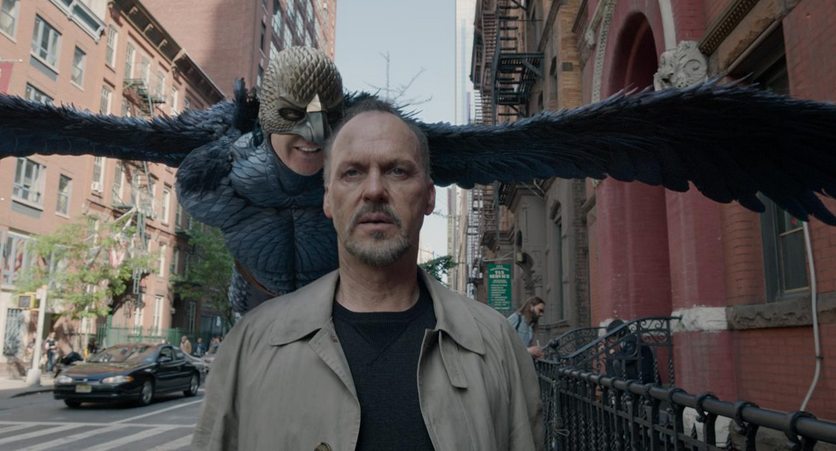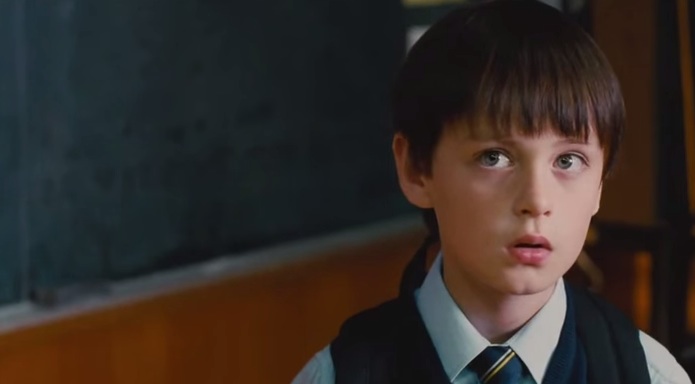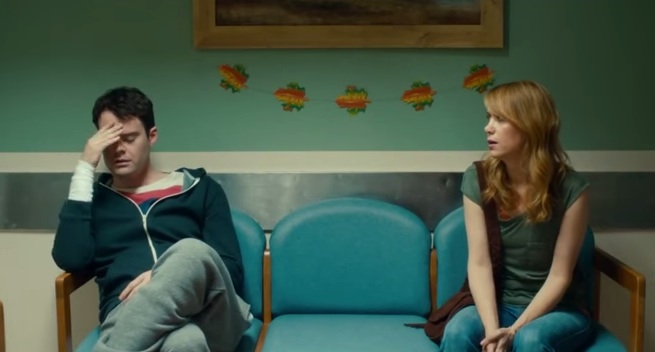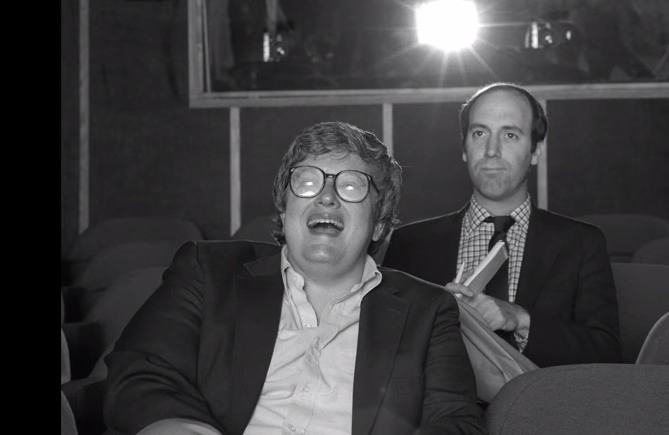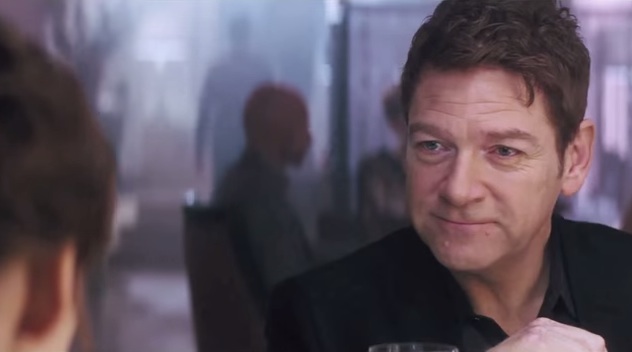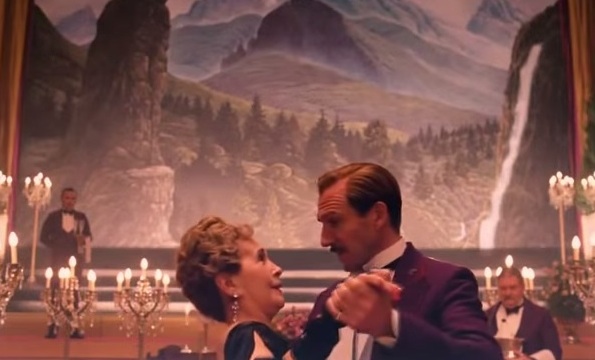Movies - Lists posts
Wednesday January 13, 2016
My Top 10 Movies of 2015
Saturday August 22, 2015
From the Archives: Top 10 Music Biopics
I wrote the following for MSN back in 2004 in anticipation of “Ray.” Some of it still works. I'll add my new top 10 at the end.
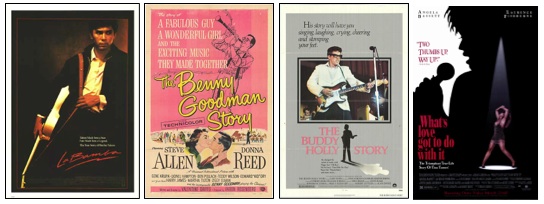
You say you’re a musician and someday you want Hollywood to tell your story? Here’s what you need to do:
- Tell friends and family there’s something “inside you” that needs to get out.
- If you're male, get a drug habit.
- If you’re female, get an abusive husband.
- Die young. Preferably by plane crash.
We don’t know how many of these scenarios are in the two music biopics opening this fall—Jamie Foxx as Ray Charles in “Ray,” and Kevin Spacey as Bobby Darin in “Beyond The Sea”—but we wouldn’t be surprised to see at least a few. In the meantime enjoy this list of our 10 best music biopics.
Guidelines. No romans a clef, such as “The Rose” or “Eight Mile.” Also no TV movies: “The David Cassidy Story” or “The John Denver Story.” Life’s too short. No documentaries or mockumentaries, either. Finally, the movie has to be about people famous for their music, not musicians famous for their biopic. This eliminates two great films—“The Pianist” and “Shine”—but opens things up to more traditional examples of the genre.
Now let’s rock n’ roll. To the toppermost of the poppermost!
10. “Bird” (1988)
Directed by Clint Eastwood. Written by Joel Oliansky.
Remember the “drug habit” scenario above? Here’s a caveat: If the drug habit is the focus of the film—like in “Lady Sings the Blues,” “Sid and Nancy,” and “The Doors”—it’ll probably kill the film. There's not much that's less dramatic than someone succumbing to addiction. So why is “Bird” on this list? Because Forest Whitaker’s tortured performance as Charlie Parker sticks. Some of the scenes, too, have a spark: traveling through the deep south with “Albino Red,” and in L.A. with Dizzy Gillespie. Too bad the rest of the film doesn’t. Too bad it’s 160 minutes.
Genre: Jazz
Who plays?: Charlie Parker.
Obstacles to success: Cymbals flying through the air.
Problems with success: Drugs. Ulcers. Racism.
Memorable number: Buster Franklin being reintroduced to that kid who couldn’t play in Kansas City.
Academy Awards: Best Sound. Forest Whitaker won Best Actor at Cannes.
Quote: “Chan, comma. Help, period. Charlie Parker.”
9. “La Bamba” (1987)
Written and directed by Luis Valdez.
It’s a bit cartoony. A migrant labor camp never looked so idyllic, and the high school hallways are straight out of “Grease.” The adolescent romance between Ritchie Valens and Donna is, well, adolescent, and Lou Diamond Phillips doesn’t lip-synch particularly well. But the movie is what it sets out to be: a kind of Cain and Abel tale, with Cain carrying a bottle and Abel a guitar. Quick question: on that night in 1959 in Clear Lake, Iowa, three musicians went down in a chartered airplane, and two are on this list: Ritchie Valens (#9) and Buddy Holly (#6). So why is J.P. Richardson getting dissed? Where’s “Hello Baby: The Big Bopper Story”?
Genre: Rock n’ roll
Who sings: Los Lobos.
Obstacles to success: Not many. The kid was seventeen.
Problems with success: His brother. Airplanes.
Memorable number: Singing “Framed” at the American Legion Hall as Bob arrives drunk and ready to fight.
Music cameos: Los Lobos (in a Mexican brothel); Brian Setzer (as Eddie Cochrane); Marshall Crenshaw (as Buddy Holly).
Quote: “I’m gonna be a star. Because stars don’t fall out of the sky, do they?”
8. “Backbeat” (1994)
Directed by Iain Softley. Written by Iain Softley, Michael Thomas, Stephen Ward.
Search the world over and you won’t find anyone who can do a better John Lennon than Ian Hart. “Backbeat” was actually Hart’s second go at John—after the short film “The Hours at the Times”—and once more he’s amazing: looks, sounds, acts just like the former Beatle. Just doesn’t sing. The film focuses on John’s friendship with his art school mate Stuart Sutcliffe, who sold a painting, bought a bass guitar and joined the band. It’s about the Beatles’ Hamburg days, where they honed their talents, and about a love triangle: John, Stuart, and Astrid, the woman who gave the Beatles bangs. But who is John jealous of: Stuart or Astrid? John seems equally confused.
Genre: Rock n’ roll
Who sings: Greg Dulli (Afghan Whigs), Dave Pirner (Soul Asylum), Mike Mills (R.E.M.), Thurston Moore (Sonic Youth), Don Fleming (Gumball), and Dave Grohl (Nirvana) play the music for the early '60s Beatles. Nice! But let’s face it: If Pete Best pounded the drums the way Grohl does, we never would’ve heard of Ringo Starr.
Obstacles to success: The picture makes it seem the Beatles’ path to success was greased when it wasn’t. Remember “Three-guitar and one-drum groups are on the way out”? You know, as wrong as you’ve ever been in your life, you’ve never been that wrong.
Problems with success: Takes place before the success.
Memorable number: “Good Golly, Miss Molly,” “Twenty Flight Rock,” “Long Tall Sally”: Take your pick.
Academy Awards: Nope. But Hart recognized as Most Promising Newcomer at the BAFTAs.
Quote: “It’s all dick.”
7. “The Benny Goodman Story” (1955)
Written and directed by Valentine Davies.
“I must say Benny does have his own strange kind of integrity,” future wife Alice Hammond says of Goodman in the middle of this biopic, and the picture’s the same way. It’s one of three Hollywood jazz stories made in the 1950s (along with “The Glenn Miller Story” and “The Gene Krupa Story”), but it works better than the other two, in part, because of this integrity. Goodman has a nerd’s courage when confronting mobsters and bland band leaders but none with Hammond, who must take the lead in their relationship. Allen is understated as the jazz clarinetist. Donna Reed is charming as the classical music enthusiast won over to jazz. And the music swings.
Genre: Jazz.
Who plays: Benny Goodman. Steve Allen was an accomplished musician/composer, however.
Obstacle to success: The usual unimaginative promoters and businessmen.
Problem with success: She’s gentile, he’s Jewish.
Memorable number: Blowing away the stuffy society folks at Carnegie Hall with “Sing Sing Sing (with a Swing).”
Music cameos: Teddy Wilson, Lionel Hampton, Gene Krupa, Ben Pollack, Kid Ory, Harry James, Ziggy Elman, and Martha Tilton.
Quote: “So many things he wants to say. And no clarinet to say them.”
6. “The Buddy Holly Story” (1978)
Directed by Steve Rash. Written by Alan Swyer.
Rock n’ roll has a bit of a complex – it yearns for both street cred and art cred – and two scenes in “The Buddy Holly Story” exemplify this. At one point Holly and the Crickets show up at the Apollo Theater in Harlem and win over a startled black crowd who were expecting black performers. That’s the street cred. Later, a classical violinist compares Holly’s use of strings in “True Love Ways” to Beethoven. That’s the art cred. It helps, too, that Holly shakes his head over the violinist’s comments. You can’t be a true rock n’ roller if you’re seen vying for art cred. The film is a low-key account of rise and crash, with Gary Busey channeling his inner geek to earn an Oscar nom, and Don Stroud and Charles Martin Smith playing great back-up as the Crickets, the band that inspired the naming of the Beatles. Occasionally the 1970s seep through the seams of this period piece, but mostly it works the way Holly’s tunes work: without strain.
Genre: Rock n’ roll
Who sings: Gary Busey. Plays, too.
Obstacles to success: Sponsors and preachers who don’t dig rock n’ roll. Suits who won’t let him produce his own music, man.
Problems with success: The jealousy/homesickness of the Crickets.
Memorable number: Singing “Oh Boy” at the Apollo Theater.
Academy Awards: Best Music. Busey was nominated Best Actor.
Quote: “No white act has ever played the Apollo!”
5. “What’s Love Got to Do with It” (1993)
Directed by Brian Gibson. Written by Kate Lanier.
You watch this thing flinching from anticipated blows. When’s he going to strike? Here? Here? When the first punch lands you find out it’s not the first anyway, and then he rains them down and drags her through the house as friends stare in mute horror and the children scream. One boy holds his ears and cries – so heartbreakingly real you wonder what they did to the kid to get him to act that way. When the abuse continues, year after year, it almost drains your energy away. But when Tina finally fights back in the limousine, and she lands that first blow of her own? Oooh, that one feels good. Too much Buddhism at the end, and Ike keeps popping up like Jason in “Friday the 13th,” but still our most emotionally raw music biopic.
Genre: Rhythm and Blues.
Who sings: Tina Turner.
Obstacles to success: Not many. Well, race.
Problems with success: Ike.
Memorable number: Singing “I Wanna Be Made Over” as she is.
Music cameos: Tina shows up at the end.
Academy Awards: Both Bassett and Fishburne were nominated. Bassett’s so good we think she would’ve won if she’d been able to sing like Tina.
Quote: “Everything’s alright. Just me and your mama talking.”
4. “Yankee Doodle Dandy” (1942)
Directed by Michael Curtiz. Written by Robert Bucker and Edmund Joseph.
Yes, cornball, overly patriotic, and the Four Cohans in blackface is embarrassing. But few actors have embodied energy on the screen as well as Cagney, who shed his gangster image (for a New York minute) by quick-talking, tap-dancing, and charming his way through this biopic of George M. Cohan, creator of American myths, and composer of such rousing American standards as “The Yankee Doodle Boy,” “Grand Old Flag,” and “Over There.” We’re a cynical lot, but the scene where he tap-dances down the White House steps still makes us misty.
Genre: Tin Pan Alley
Who sings: Cagney, see?
Obstacles to success: Dietz and Goff.
Problems with success: Critics. Teenagers in jalopies.
Memorable number: “Yankee Doodle Dandy.” What else?
Music cameos: Eddie Foy, Jr. plays Eddie Foy.
Academy Awards: Best Actor (Cagney), Music and Sound. Nominated for five others, including Picture, Director, Script, Editing, and Supporting Actor (Huston)
Quote: “My mother thanks you, my father thanks you, my sister thanks you, and I thank you.”
3. “Bound for Glory” (1976)
Directed by Hal Ashby. Written by Robert Getchell.
Ironic title, given it’s one of the few music biopics where the lead character doesn’t seem bound for glory. In fact the young Woody Guthrie seems like a lazy, impractical dreamer. He paints signs, plays fiddle, tells fortunes, fools around. The movie picks up when he picks up and encounters bullying railroad men and uncaring church men on his way to California, the promised land, where things only get worse. The film is like its subject. It has an unhurried, rambling nature. Look for Ronny Cox, the epitome of corporate villainy in films like “Robocop,” as Woody’s mentor, Ozark Bule, the anti-corporate union organizer.
Genre: Folk.
Who sings: David Carradine. Actors sang in the seventies.
Obstacles to success: The dust bowl. The California border patrol.
Problems with success: Sponsors, marketers, and packagers.Memorable number: A sing-along led by Ozark Bule in a migrant labor camp.
Academy Awards: Best Music and Cinematography (Haskell Wexler). Nominated for Film Editing, Costume Design, Writing and Picture. 1976 was a tough year at the Oscars.
Quote: “You sure as hell don’t look like much. How do you sing?” “Makes me happy.”
2. “Coal Miner’s Daughter” (1980)
Directed by Michael Apted. Written by Thomas Rickman.
For a film with abject poverty, a near-rape scene, and a whole lot of bickering and squallering, this movie is pure fun. It’s partly the writing and direction, of course, and it doesn’t hurt to have locals in speaking parts. (When did directors stop doing that?) But the movie really belongs to its two stars. Sissy Spacek plays Loretta Lynn from age 13 to, what, 40? She sings like Loretta. Hell, she should’ve gone to Nashville afterwards and cut herself some records. And with her in nearly every scene is one of the best actors in Hollywood. Tommy Lee Jones’ Doolittle Lynn is a flawed, fascinating man who literally drives his wife to stardom only to discover that by succeeding he’s failed. Her success – their success – has rendered him superfluous. How does he handle this? At first poorly; then like a man.
Genre: Country.
Who sings: Sissy Spacek. Perhaps the only thing more amazing than Spacek’s pitch-perfect Loretta Lynn is Beverly D’Angelo’s pitch-perfect Patsy Cline.
Obstacles to success: Poverty, obscurity, shyness.
Problems with success: Headaches. Doo.
Memorable number: Quieting a honky-tonk with “There He Goes.”
Music cameos: Ernest Tubb and Minnie Pearl. Levon Helm plays Loretta’s father.
Academy Awards: Best Actress for Spacek. The film was nominated for six others, including Picture, Writing, Art Direction, Cinematography, Editing and Sound. The fact that Tommy Lee Jones wasn’t even nominated discounts for all eternity every awards show everywhere. We’re serious.
Quote: “Stop making that noise! You sound like an old bear growling.”
1. “Amadeus” (1984)
Directed by Milos Foreman. Written by Peter Shaffer.
It’s more than a biopic; it’s a blueprint for how to deal with genius on screen. Simply view the extraordinary (Mozart) through the eyes of the ordinary (Salieri). There’s one glorious scene after another here: Salieri playing his and then Mozart’s music before the innocent priest; Mozart playing back the little march of welcome Salieri composed in his honor (“That doesn’t quite work, does it?”); Salieri looking through Mozart’s first – and only – drafts. And on and on, right up to the very end when Antonio Salieri, the Patron Saint of mediocrities, absolves us all. And the music? “Finished as no music is ever finished.”
Genre: Classical
Who plays: Neville Marriner
Obstacles to success: Too many notes.
Problems with success: Dead father. Carping wife. Jealous colleague. Not necessarily in that order.
Memorable number: Pick one.
Academy Awards: Best Picture, Director, Writer, Actor (Abraham), Art Direction, Costume Design, Make-up and Sound. Also nominated for Actor (Hulce), Cinematography, and Editing.
Quote: “I was staring through the cage of those meticulous ink strokes – at an absolute beauty.”
Not bad: “The Glenn Miller Story” (1953); “Lady Sings the Blues” (1972); “Sweet Dreams” (1985); “Sid & Nancy” (1986); “Immortal Beloved” (1994);
Not good: “The Gene Krupa Story” (1959); “Mahler” (1974); “Lisztomania (1976); “The Doors” (1991); “Selena” (1997)
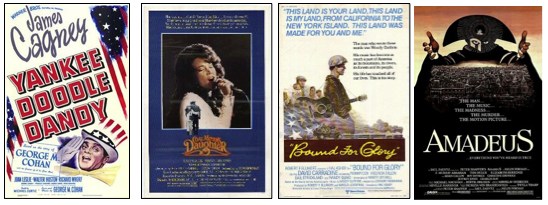
Since then? The floodgates. We've gotten, among others, “Ray” (Ray Charles) “Beyond the Sea” (Bobby Darrin) “Walk the Line” (Johnny Cash) “La Vie en Rose” (Edit Piaf) “I'm Not There” (Bob Dylan) “Cadillac Records” (Chess Records) “Jersey Boys” (Frank Valli) “Get On Up” (James Brown) “Jimi: All Is By My Side” (Jimi Hendrix), “Love & Mercy” (Brian Wilson) and “Straight Outta Compton” (NWA).
Some I haven't seen yet. And with some of the top 10 above I'm like, really, Erik? “What's Love Got to Do With It?” at No. 5? I keep thinking that I gave “Bird” short shrift and movies like “La Bamba” too much shrift. I keep remembering being not overwhelmed by “Bound for Glory.” I remember exactly nothing about “The Benny Goodman Story.”
Given all that, here's my new Top 10. Your results will differ:
- Amadeus
- Coal Miner's Daughter
- Yankee Doodle Dandy
- La Vie en Rose
- I'm Not There
- Love & Mercy
- Bound for Glory
- Jimi: All Is By My Side
- What's Love Got to Do With It?
- The Buddy Holly Story
Beyond the first two, it's really kind of a crapshoot.
Whose music biopic would you like to see on screen? Or maybe the better question, given the history of the genre, is: Whose story would you LEAST like to see Hollywood screw up?
Saturday August 15, 2015
Ranking Hitchcock
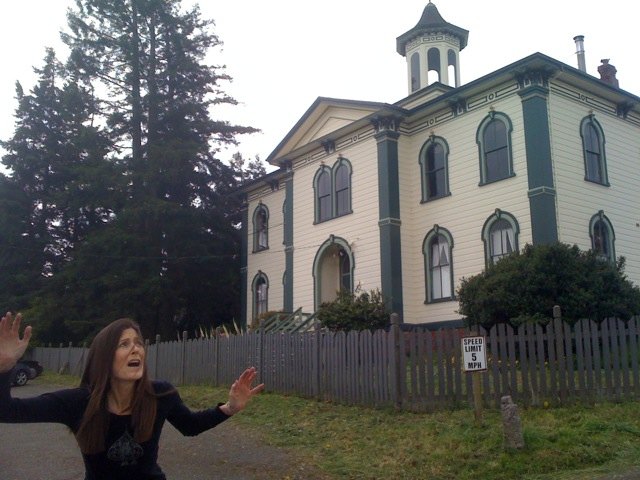
Patricia outside the Potter Schoolhouse during a 2011 trip to Bodega, Cal.
On the day of Alfred Hitchcock's 116th birthday, two days ago, some top IndieWire critics, including Anne Thompson, Susan Wloszczyna and John Anderson, ranked their 25 favorite Hitchock films. Twenty-five! “Vertigo,” the new darling, was No. 2, while “Notorious” took the top slot. I saw the list via Jeff Wells, who had some mild disagreements, mostly with the highish ranking (13th) of “Marnie,” which both Wells and I think is the lamest of Hitchcock's work. But it's been revived by the New Yorker's Richard Brody. Too bad. But Wells agrees with IndieWire about the new No. 1.
My history of Hitchcock is sketchy, but of the ones I‘ve seen I’d rank them in this order:
- The 39 Steps
- Rear Window
- Notorious
- Vertigo
- Psycho
- The Birds
- Rebecca
- North by Northwest
- The Lady Vanishes
- Rope
- Dial M for Murder
- Sabotage
- The Wrong Man
- Spellbound
- Marnie
There's a great purity and economy in the storytelling of “The 39 Steps,” not to mention wit. It reminds me of what Fitzgerald and Salinger did with the best of their stories. It's also got one of the great steamy scenes of the 1930s.
I need to see more Hitchcock, obviously.
Tuesday July 28, 2015
My Top 10 American Movies, as of July 28, 2015
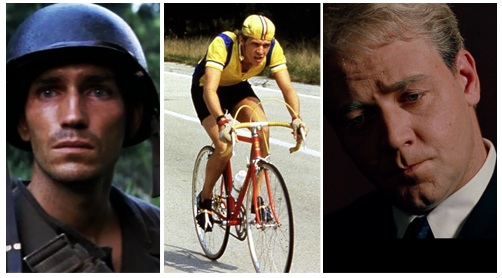
The dark side of the American dream: war, profits, and the death of the working class. None of these movies wound up on the BBC list.
I'll have a few more posts about that BBC list of the top 100 American movies as chosen by 62 international critics, but, as a reminder, each of the 62 chose their own top 10, with No. 1 being worth 10 points, 2 worth nine points, and so on. Since I'm a bit critical of the list, I thought I'd come up with my own Top 10. Haven't done it in a while. And never from a wholly American perspective.
It's not easy. This is what the BBC says about its process:
What defines an American film? For the purposes of this poll, it is any movie that received funding from a US source. The directors of these films did not have to be born in the United States – in fact, 32 films on the list were directed by film-makers born elsewhere – nor did the films even have to be shot in the US. ... Critics were encouraged to submit lists of the 10 films they feel, on an emotional level, are the greatest in American cinema – not necessarily the most important, just the best. These are the results.
I went after movies that say something deep and real about life. And if they say something deep and real about American life, all the better. “The Godfather,” after all, is about the dark side of the American dream (first line: I believe in America) and so is “All the President's Men.” I guess most of these films are, now that I think about it. Even “Breaking Away.” It's lighthearted in tone but it's about the death of the blue-collar working class. It's about owning your epithet (nothing is more American than that), and, in a very funny way, it's about the American talent for reimagining yourself—in this case as a non-American; as an Italian.
I also tried to pick movies that I've watched at least five times and would like to watch again. Like right now.
Enough gab:
| My Rank | Movie | Director | BBC Rank |
| 1 | The Thin Red Line (1998) | Terrence Malick | n/a |
| 2 | The Godfather (1972) | Francis Ford Coppola | 2 |
| 3 | The Insider (1999) | Michael Mann | n/a |
| 4 | Casablanca (1943) | Michael Curtiz | 9 |
| 5 | Annie Hall (1977) | Woody Allen | 23 |
| 6 | Breaking Away (1979) | Peter Yates | n/a |
| 7 | All the President's Men (1976) | Alan J. Pakula | n/a |
| 8 | Amadeus (1984) | Milos Forman | n/a |
| 9 | Singin' in the Rain (1952) | Stanley Donen, Gene Kelly | 7 |
| 10 | Monkey Business (1931) | Norman McLeod | n/a |
Immediate thoughts:
- It's a very '70s-centric list but it could have been more so: “Chinatown,” “Cuckoo's Nest,” “Love and Death,” “Jaws,” “The Godfather Part II.” The '70s were a good decade for American film and I was coming of age during it.
- Six of my 10 aren't on the BBC's top 100.
- When will “The Thin Red Line” get its due? When will “The Insider”? (I have no hope that “Breaking Away” will ever get its due.)
Feel free to post your Top 10 (or 5, or 3) below.
Wednesday July 22, 2015
That BBC 100 Greatest Movies List, By Genre
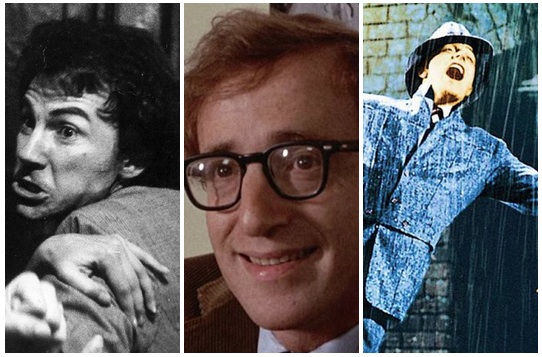
In BBC's list, crime is strong, comedies are holding their own, but musicals are way over yonder in the minor key.
OK, another post about BBC's list of the 100 greatest American films, as chosen by 62 international critics.
First thing I noticed? Not a lot of musicals. Also not many animated movies: one, to be precise. A superhero movie made the list, which is new, plus two documentaries. And an experimental short from the 1940s? OK. I guess. But one wonders how.
Which genres did well? That most American of genres, the western, did OK. So did crime drama and film noir, both of which are wholly American, despite the latter's French nomenclature and the European pedigree of many of its most famous practitiioners.
(Side thought: How many of the directors on this auteur-heavy list of great American movies are foreign-born?)
Comedy did OK, with some interesting choices (ex: “Groundhog Day”), while horror got the usual nods (Hitchcock, Kubrick) plus one unusual one (“Night of the Living Dead”). The critics weren't loving the war movies. In fact, there's more of what I call “mystery thriller w/perverse sexuality” than there is of war.
This last comment indicates a problem with even attempting what I'm attempting. What genre is “The Tree of Life,” for example? Or “Casablanca”? Or “Crimes and Misdemeanors”? Is this last a crime drama? A crime drama with comedy? A comedy with crime and drama? What's the difference between a crime drama and a film noir? Entire books have been written on that subject. I can't help recalling James Baldwin's great line about how our passion for categorization, our attempt to order the world neatly, has “boomeranged us into chaos; in which limbo we whirl, clutching the straws of our definitions.” That's me, here. But I keep doing it. Or attempting it.
Proviso stated, here are the genre numbers. (I've added the “mystery thriller w/sex” subgenre into the “thriller” category):
- Drama: 31
- Comedy: 16
- Western: 10
- Film noir: 9
- Thriller: 7
- Musical: 5
- Sci-fi: 5
- Action: 3
- Horror: 3
- Romance: 3
- War: 3
- Documentary: 2
- Animated: 1
- Superhero: 1
- Short: 1
Essentially it's a dark brooding list with a few oddities, like “Forrest Gump” at No. 74. (I put that one in its own category: “drama, comedy.” It seems a drama to me first. You could go: “drama, fantasy” or “drama, history,” too.)
For a list that ends with “Citizen Kane” at No. 1 and “The Godfather” at No. 2, it's also a fairly hip list, which makes “Gump” an even odder inclusion. Maybe it's getting its hipster fans now, who are reacting to my generation's overall shrug on the subject.
In the meantime, for masochists, the list as sorted by genre (or its best approximation):
| Film | Genre |
| 84. Deliverance (John Boorman, 1972) | action-adventure |
| 82. Raiders of the Lost Ark (Steven Spielberg, 1981) | action-adventure |
| 38. Jaws (Steven Spielberg, 1975) | action-adventure |
| 86. The Lion King (Roger Allers and Rob Minkoff, 1994) | animated |
| 95. Duck Soup (Leo McCarey, 1933) | comedy |
| 83. Bringing Up Baby (Howard Hawks, 1938) | comedy |
| 71. Groundhog Day (Harold Ramis, 1993) | comedy |
| 67. Modern Times (Charlie Chaplin, 1936) | comedy |
| 50. His Girl Friday (Howard Hawks, 1940) | comedy |
| 44. Sherlock Jr (Buster Keaton, 1924) | comedy |
| 30. Some Like It Hot (Billy Wilder, 1959) | comedy |
| 18. City Lights (Charlie Chaplin, 1931) | comedy |
| 17. The Gold Rush (Charlie Chaplin, 1925) | comedy |
| 55. The Graduate (Mike Nichols, 1967) | comedy, dark |
| 42. Dr Strangelove (Stanley Kubrick, 1964) | comedy, dark |
| 24. The Apartment (Billy Wilder, 1960) | comedy, dark |
| 58. The Shop Around the Corner (Ernst Lubitsch, 1940) | comedy, romance |
| 32. The Lady Eve (Preston Sturges, 1941) | comedy, romance |
| 23. Annie Hall (Woody Allen, 1977) | comedy, romance |
| 56. Back to the Future (Robert Zemeckis, 1985) | comedy, sci-fi |
| 69. Koyaanisqatsi (Godfrey Reggio, 1982) | documentary |
| 53. Grey Gardens (Albert and David Maysles, Ellen Hovde and Muffie Meyer, 1975) | documentary |
| 73. Network (Sidney Lumet, 1976) | drama |
| 63. Love Streams (John Cassavetes, 1984) | drama |
| 31. A Woman Under the Influence (John Cassavetes, 1974) | drama |
| 26. Killer of Sheep (Charles Burnett, 1978) | drama |
| 25. Do the Right Thing (Spike Lee, 1989) | drama |
| 14. Nashville (Robert Altman, 1975) | drama |
| 59. One Flew Over the Cuckoo’s Nest (Miloš Forman, 1975) | drama |
| 29. Raging Bull (Martin Scorsese, 1980) | drama |
| 22. Greed (Erich von Stroheim, 1924) | drama |
| 74. Forrest Gump (Robert Zemeckis, 1994) | drama, comedy |
| 79. The Tree of Life (Terrence Malick, 2011) | drama, coming of age |
| 57. Crimes and Misdemeanors (Woody Allen, 1989) | drama, crime |
| 93. Mean Streets (Martin Scorsese, 1973) | drama, crime |
| 81. Thelma & Louise (Ridley Scott, 1991) | drama, crime |
| 28. Pulp Fiction (Quentin Tarantino, 1994) | drama, crime |
| 20. Goodfellas (Martin Scorsese, 1990) | drama, crime |
| 19. Taxi Driver (Martin Scorsese, 1976) | drama, crime |
| 10. The Godfather Part II (Francis Ford Coppola, 1974) | drama, crime |
| 6. Sunrise (FW Murnau, 1927) | drama, crime |
| 2. The Godfather (Francis Ford Coppola, 1972) | drama, crime |
| 94. 25th Hour (Spike Lee, 2002) | drama, crime |
| 46. It’s a Wonderful Life (Frank Capra, 1946) | drama, fantasy |
| 99. 12 Years a Slave (Steve McQueen, 2013) | drama, history |
| 97. Gone With the Wind (Victor Fleming, 1939) | drama, history |
| 65. The Right Stuff (Philip Kaufman, 1983) | drama, history |
| 39. The Birth of a Nation (DW Griffith, 1915) | drama, history |
| 27. Barry Lyndon (Stanley Kubrick, 1975) | drama, history |
| 11. The Magnificent Ambersons (Orson Welles, 1942) | drama, history |
| 1. Citizen Kane (Orson Welles, 1941) | drama, history |
| 47. Marnie (Alfred Hitchcock, 1964) | drama, psychological |
| 87. Eternal Sunshine of the Spotless Mind (Michel Gondry, 2004) | drama, sci-fi |
| 48. A Place in the Sun (George Stevens, 1951) | film noir |
| 100. Ace in the Hole (Billy Wilder, 1951) | film noir |
| 92. The Night of the Hunter (Charles Laughton, 1955) | film noir |
| 89. In a Lonely Place (Nicholas Ray, 1950) | film noir |
| 72. The Shanghai Gesture (Josef von Sternberg, 1941) | film noir |
| 54. Sunset Boulevard (Billy Wilder, 1950) | film noir |
| 51. Touch of Evil (Orson Welles, 1958) | film noir |
| 35. Double Indemnity (Billy Wilder, 1944) | film noir |
| 12. Chinatown (Roman Polanski, 1974) | film noir |
| 85. Night of the Living Dead (George A Romero, 1968) | horror |
| 62. The Shining (Stanley Kubrick, 1980) | horror |
| 8. Psycho (Alfred Hitchcock, 1960) | horror |
| 88. West Side Story (Robert Wise and Jerome Robbins, 1961) | musical |
| 80. Meet Me in St Louis (Vincente Minnelli, 1944) | musical |
| 70. The Band Wagon (Vincente Minnelli, 1953) | musical |
| 7. Singin’ in the Rain (Stanley Donen and Gene Kelly, 1952) | musical |
| 34. The Wizard of Oz (Victor Fleming, 1939) | musical fantasy |
| 61. Eyes Wide Shut (Stanley Kubrick, 1999) | mystery thriller w/sex |
| 60. Blue Velvet (David Lynch, 1986) | mystery thriller w/sex |
| 21. Mulholland Drive (David Lynch, 2001) | mystery thriller w/sex |
| 3. Vertigo (Alfred Hitchcock, 1958) | mystery thriller w/sex |
| 43. Letter from an Unknown Woman (Max Ophüls, 1948) | romance, drama |
| 9. Casablanca (Michael Curtiz, 1942) | romance, drama |
| 37. Imitation of Life (Douglas Sirk, 1959) | romance, weepy |
| 91. ET: The Extra-Terrestrial (Steven Spielberg, 1982) | sci-fi |
| 76. The Empire Strikes Back (Irvin Kershner, 1980) | sci-fi |
| 75. Close Encounters of the Third Kind (Steven Spielberg, 1977) | sci-fi |
| 36. Star Wars (George Lucas, 1977) | sci-fi |
| 4. 2001: A Space Odyssey (Stanley Kubrick, 1968) | sci-fi |
| 40. Meshes of the Afternoon (Maya Deren and Alexander Hammid, 1943) | short, experimental |
| 96. The Dark Knight (Christopher Nolan, 2008) | superhero |
| 13. North by Northwest (Alfred Hitchcock, 1959) | thriller |
| 33. The Conversation (Francis Ford Coppola, 1974) | thriller, psychological |
| 68. Notorious (Alfred Hitchcock, 1946) | thriller, romance |
| 90. Apocalypse Now (Francis Ford Coppola, 1979) | war |
| 78. Schindler’s List (Steven Spielberg, 1993) | war |
| 15. The Best Years of Our Lives (William Wyler, 1946) | war |
| 98. Heaven’s Gate (Michael Cimino, 1980) | western |
| 77. Stagecoach (John Ford, 1939) | western |
| 66. Red River (Howard Hawks, 1948) | western |
| 64. Johnny Guitar (Nicholas Ray, 1954) | western |
| 52. The Wild Bunch (Sam Peckinpah, 1969) | western |
| 49. Days of Heaven (Terrence Malick, 1978) | western |
| 45. The Man Who Shot Liberty Valance (John Ford, 1962) | western |
| 41. Rio Bravo (Howard Hawks, 1959) | western |
| 16. McCabe & Mrs Miller (Robert Altman, 1971) | western |
| 5. The Searchers (John Ford, 1956) | western |
More later.
Wednesday July 22, 2015
That BBC 100 Greatest Movies List, Decade by Decade
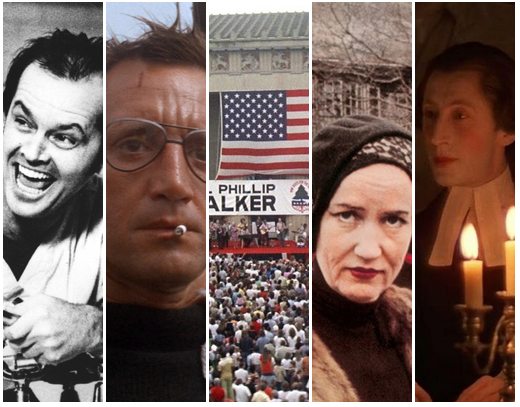
The greatest year in American movie history, according to the 62.
The BBC recently published a list of the 100 greatest American films as chosen by 62 international critics. Why international? Why not American? Or since it's the BBC, why not British? We might learn something of what the Brits think of Americans or what Americans think of America. Instead, “international.” And “62.” OK.
I'll write more about what's there, what's missing, maybe why, but in the meantime here's something less (or maybe more) controversial: the numbers.
We'll start with the 62. Each of the 62 critics submitted a list of 10 favorites, ranked 1 to 10. Every 1 was worth 10 points, every 10 worth 1, meaning each list was worth 55 points total and the whole kit and kaboodle worth 3,410 points. Theoretically, “Citizen Kane” at No. 1 could have 620 points and then a big drop-off but like the Oscars we don't get the percentages.
Let's move onto 21. That's the number of movies from the 1970s that made the list. Next highest is a tie between the '40s and '50s with 15 each. Lowest is the 1900s with zero, then the 1910s with one, then the 2010s with two. As chart, this is our decade-by-decade movie cityscape:

Here's a handier chart:
| Decade | No. Films | High rank | Best Film |
| 2010s | 2 | 79 | The Tree of Life |
| 2000s | 4 | 21 | Mulholland Drive |
| 1990s | 8 | 20 | Goodfellas |
| 1980s | 13 | 25 | Do the Right Thing |
| 1970s | 21 | 2 | The Godfather |
| 1960s | 10 | 4 | 2001: A Space Odyssey |
| 1950s | 15 | 3 | Vertigo |
| 1940s | 15 | 1 | Citizen Kane |
| 1930s | 7 | 18 | City Lights |
| 1920s | 4 | 6 | Sunrise |
| 1910s | 1 | 39 | Birth of a Nation |
There's definitely a sweet spot, and one wonders if it's because American movies had a sweet spot or if the critics do, relative to their age. Probably a little of both.
If there is a sweet spot you could say it's the Ford years. Gerald Ford. The year he took over from Nixon, 1974, has four films on the list, while his first full year in office, 1975, has five, the most for any single year. Meaning these two years have more movies than the entire 1930s, which was considered, when I was growing up in the 1970s, the golden age of moviemaking. I guess gold, like love, fades.
Here's another number: 5. It's the most movies any director has on the list, but five of them have it: Wilder, Hitchcock, Kubrick, Spielberg, Scorsese. So between them they account for 1/4 of the 100 greatest American movies ever made. According to these 62.
Coppola and Hawks each have four, while Chaplin, Welles and Ford (behind Hawks for a change) each wind up with three spots. Many directors have two movies on the list, including Woody Allen, Spike Lee, David Lynch, Terrence Malick and Robert Zemeckis. That's right. Robert Zemeckis. He has two but the Coen brothers have zero. Michael Mann got bupkis as well. But now we're getting past numbers. I'll save arguments for another day.
Saturday July 11, 2015
Ranking Michael Mann's Movies
I just saw “Blackhat” this week so I'm a Michael Mann completeist again—although, to be fair, I don't remember much of “Manhunter” and probably less of “Miami Vice.” I remember most of “The Insider.” I've probably seen that movie 10 times now.
Here's my ranking if you're looking for a good Michael Mann movie this week. Or next:
- The Insider (1999)
- Thief (1981)
- Collateral (2004)
- Heat (1995)
- The Last of the Mohicans (1992)
- Manhunter (1986)
- Public Enemies (2009)
- Ali (2002)
- Blackhat (2015)
- Miami Vice (2007)
Whoops, not a completeist: I haven't seen “The Keep” (1983). Sorry. Sloppy work. In a Michael Mann movie, I'm Waingro.
None of these movies are bad, by the way. There's always something of value in them. There are beautiful scenes; they are beautifully photographed.
I could see, for example, a great double-feature of “Public Enemies” and “Blackhat.” In the former, in the beginning, John Dillinger has ultimate freedom; he can go anywhere he wants to go. He even tells that to Billie. Where are you going? she asks. Anywhere I want, he replies. But unbeknownst, the world is shifting beneath his feet. Modern technology is creating forces that will so impede his freedom he won't even be able to go to the movies.
In “Blackhat” it's the opposite. The expert in the modern digital world can go almost anywhere again—virtually. There are no borders anymore. As long as you're not physically caught.
The contrast isn't 100 perecent, but there's something there. The freedom of the thief impeded by technology in the beginning of the 20th century, then freed again by digital technology in the beginning of the 21st.
Here's a video tribute to Mann from Alexandre Gasulla. Here's the great final scene in “Public Enemies.” Review of “Blackhat” up soon.
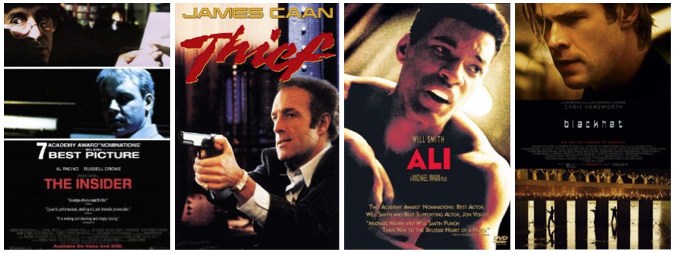
“Stop talking, OK Slick?”
Tuesday June 09, 2015
My 2015 SIFF Awards
The Seattle International Film Festival is finally over (whew) and on Sunday it announced its awards. I don't agree with it all but that's the nature of the beast.
Here's mine—from best to worst—limited, of course, to the movies I saw:
- Theeb (Jordan)
- Meeting Dr. Sun (Taiwan)
- Me and Earl and the Dying Girl (USA)
- The End of the Tour (USA)
- Don't Think I've Forgotten: Cambodia's Lost Rock and Roll (Cambodia)
- The Connection (France)
- Love & Mercy (USA)
- Excuse My French (Egypt)
- People, Places, Things (USA)
- Being Evel (USA)
- Mr. Holmes (GB)
- Slow West (USA)
- The Overnight (USA)
- The Killing Fields of Dr. Haing S. Ngor (USA)
- Spy (USA)
- Kurmanjan Datka: Queen of the Mountains (Kyrgyzstan)
- Love, Theft and Other Entanglements (Palestine)
- Vincent (France)
- Eisenstein in Guanajuato (GB)
I'm a little ashamed that there's not greater (or any?) Seattle buzz for “Theeb.” I think it's a great film: an art film with a strong narrative thrust.
Overall, though, I had a pretty good year at SIFF. I'd recommend my top 15 films to almost anyone.

Yes, yes, yes, eh.
Friday February 27, 2015
Top 25 Movies of the Decade So Far

Hard to believe, but we're already halfway through the decade. And you know what that means, don't you? Listomania.
Yesterday, The Film Stage came out with its list of the top 50 films of the half-decade, and it's ... um ... Well, let's just say their arthouse films (“Upstream Color,” “Before Midnight,” “Uncle Boonmee Who Can Recall His Past Lives.”) are not my arthouse films. Except when they are (“The Tree of Life,” “Inside Llewyn Davis,” “The Master”).
Anyway, it got me to thinking about my own list.
Feelings about movies change, of course. Some grow in the mind with repeated viewings or simply through repeated thought; others diminish. Roger Ebert's favorite movie of 1980 was “The Black Stallion, with ”Raging Bull“ second; but when he did his ”Best of the '80s“ list 10 years later, ”Stallion“ didn't make the cut while ”Bull" was now No. 1 for the entire decade.
Here's mine. Your mileage will vary.
- The Tree of Life (2011)
- Boyhood (2014
- De rouille et d'os (2012)
- Ida (2014)
- Des hommes et des dieux (2010)
- Birdman (2014)
- Restrepo (2010)
- Moneyball (2011)
- Le Passé (2013)
- The Wolf of Wall Street (2013)
- The Drop (2014)
- End of Watch (2012)
- The Social Network (2010)
- Inside Llewyn Davis (2013)
- La Grand Bellezza (2013)
- A Separation (2011)
- The Master (2012)
- A Film Unfinished (2010)
- Margin Call (2011)
- American Hustle (2013)
- The Grand Budapest Hotel (2014)
- Monsieur Lazhar (2011)
- Young Adult (2011)
- The Descendants (2011)
- Toy Story 3 (2010)
Monday January 12, 2015
My Top 10 Movies of 2014
Saturday January 03, 2015
The 8 Worst Movies of 2014
Thursday January 01, 2015
My Top 10 Movie Quotes of 2014
Saturday December 20, 2014
Film Critics Wrap 2014: Consensus at the Frye
Patricia and I went to the Frye Art Museum's “Critics Wrap 2014” (film version), hosted by critic Robert Horton for the 10th and apparently last time. He and his wife are moving to Scotland in February.
For the brunt of the evening, before we all repaired to the alcove for champagne, toasts, and a tidbit of conversation, we watched the four on stage debate the best movies of the year. Except, per Seattle, there wasn't much debate. There was mostly agreement. Except from me in the audience. I kept disagreeing with what they were saying.
Here are the top 5 movies from each critic (Andrew Wright wasn't in attendance):
|
Robert Horton |
Kathleen Murphy
|
|
Jim Emerson
|
Andew Wright |
The two movies at the top of each list are “Under the Skin” and “Only Lovers Left Alive,” and I wasn't a fan of either—although I predicted, in the first graf of my review back in April, that “Skin” would be a topic of critical conversation at the end of the year. I'm actually willing to revisit “Skin,” to be honest. You never know. One critic, Kathleen Murphy, says she didn't like the movie the first time she saw it, but after the second time it became her favorite movie of the year. Quite a leap. Woody Allen once talked about his first screening of “2001: A Space Odyssey,” and how disappointed he was with it, and how after two more viewings over the years he realized what a sensational movie it was. So maybe that'll happen with me and “Skin.”
But “Only Lovers Left Alive” has a big problem that none of the four people on stage mentioned. It's a very nostalgic film but its nostalgia is writer-director Jim Jarmusch's, not the characters'. The leads, Adam and Eve, are vampires who have lived for centuries, maybe millennia, and are well-versed in the arts and sciences; but their nostalgia is particular to, say, 60-year-old hipsters. They play 45s, read Shakespeare's Sonnet CXVI, lament the death of culture. The heroes on Adam's walls are the heroes of a college student in the late 1960s, not a vampire who was born in, say, 838 A.D. It's a good movie, but ... top 5? For everyone? That's a bit much.
There was a bit much consensus on stage, too. No one really disagreed on a movie until a kid in the audience asked about “Gone Girl,” which Emerson liked and the others didn't. But that was after more than an hour of scenery chewing.
Is this a danger? This consensus? Does it demonstrate that these are in fact “the best” or does it demonstrate that Horton and his friends, two of whom were his teachers, have similar backgrounds, tastes, experiences, predilections, conversations?
I'm looking forward to “The Homesman” anyway. And my own top 10 list. About which even I don't have much consensus.
Friday January 17, 2014
My Top 10 Movies of 2013
“This river brings a lot of trash down it,” says Uncle Galen (Michael Shannon) to his nephew, Ellis (Tye Sheridan), in Jeff Nichols’ “Mud.” “You gotta know what’s worth keeping and what’s worth letting go.”
So with the movies. I talked about the trash earlier. Here are some of the keepers.
2013 started out awful (“The Last Stand,” “A Good Day to Die Hard,” “Olympus Has Fallen,” rahhrrrr), but that's typical. But it didn't get much better over the summer (you should've been better, “Man of Steel,” “World War Z,” etc.), while fall brought a slew of critically acclaimed but thin portrayals that left me appreciative but lukewarm (“Aint Them Bodies Saints,” “Fruitvale Station,” “Short Term 12”).
Then came December.
I had trouble with Nos. 1 and 2. I kept switching them in my head. “American Hustle” is the tighter film, and it almost never stops being fun, but I had more to say about “Wolf of Wall Street.” It kept reverberating in my mind. The controversy helped in this regard. I keep having to return to it to defend it. Plus it challenges us more. It challenges our notions ofthe American Dream.
I actually left a screening of “Inside Llewyn Davis” somewhat disappointed, but it’s worked on me since. The work began almost immediately with the Salieri connection. Leaving “Kapringen (A Hijacking)” during SIFF, I felt the opposite, blown away, devastated, and “Captain Phillips,” the other Somali pirate, only made the Danish film seem that much better. I really don’t get the lack of attention for “Philomena.” Well, I guess I do. It’s a straightforward story with a surprising midway turn and a good ending. I think it’s underrated. I think Judi Dench is being taken for granted. Stop it, you.
I reviewed more than 100 movies in 2013 and 80 of them were 2013 movies. These are the best I saw.
10. MUSCLE SHOALS
Having grown up hearing how white performers made a mint off of, or stole outright, black music, it’s fascinating to see just who was backing some of the great black performers of the 1960s. Wilson Pickett on “Mustang Sally”? White dudes. Percy Sledge on “When a Man Loves a Woman”? White dudes. Aretha on “R-E-S-P-E-C-T”? The same white dudes, a group of guys from or near Muscle Shoals, Ala., called the Swampers. In this doc, they’re variously called “funky,” “groovy,” and, courtesy of Aretha, “greasy” with a z, but the best description comes from a man who never played with them. Bono, U2’s frontman, calls them “a bunch of white guys who looked like they worked at the supermarket around the corner.”

9. MUD
“Mud” is an adventure story about two teenage boys who stumble upon a charismatic outlaw on an island in Dewitt, Ark., but it’s also a very specific type of coming-of-age story. It’s about how life, if you pay attention, keeps pushing you away from childhood absolutes and toward complexity and relativism. Ellis (Tye Sheridan), 14, lives along the White River with his taciturn father, Senior, and a mother who wants a divorce. She wants to move away from the river, which is how Senior makes his living. It’s also all that Ellis has known. Neither man is happy about it but Senior accepts it; Ellis refuses. Or he deals with this coming instability by searching for stability. He finds it in the unlikeliest of places: in a boat in the trees

8. PHILOMENA
It isn’t perfect. Coogan, who wrote the screenplay with Jeff Pope, pushes the differences between the two characters to an unnecessary comic degree. He turns Sixsmith into too much of a Steve Coogan character and makes Philomena more daft than she probably is. But Dench is perfect. We get several scenes from the 1950s to demonstrate what Philomena lost, but these, to me, are almost unnecessary. We know what Philomena lost. You just need to watch Judi Dench act.
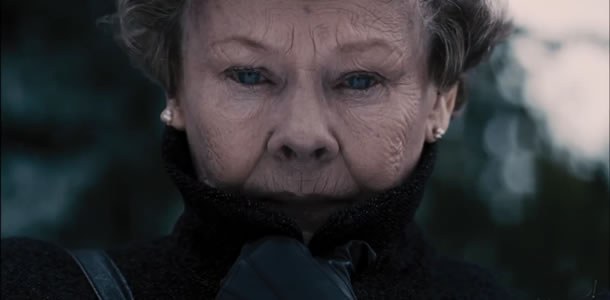
7. NO
What does the title refer to? It's obvious, right? In 1988, international pressure led Chilean leader Augusto Pinochet to hold a plebiscite on whether he should remain in power. Vote YES for Pinochet, vote NO and real elections follow.That's what NO means, and our hero, René Saavedra (Gael García Bernal), the son of a leftist and ex-husband of a leftist and a former exile himself who now works in advertising, agrees to advise the NO campaign. But might the title also be referring to René Saavedra? Is the movie actually saying “No!” to its hero?

On the cargo ship, a few of the men get closer to a few of the pirates. It’s an unequal relationship, of course. One side is always this close to being humiliated, or this close to being killed. They run out of food, catch a fish, sing “Happy Birthday.” The one song everyone knows. But as the days grind on things get bad. Mikkel isn’t shot but he is psychologically abused. A skinny pirate follows him around, keeps placing the barrel of a gun on his neck, keeps pulling the trigger. Click. Remember the “Mao mao” guy from “The Deer Hunter”? Like that. We want to kill the guy. Mikkel goes the other way. He breaks. Pilou Asbæk gives a stunning performance. In the beginning, in his gregarious stage, he reminded me of a scruffy, bearded Joshua Jackson. By the end, with his thousand-yard stare, I kept thinking of Michael Shannon. Either nobody’s home or the person that’s home is curled up in a corner in the basement. And be careful about ringing the doorbell.

How much do the movies inure us, blind us, unite us with the powerful onscreen rather than the powerless? To what extent do we take the lies of Hollywood from the theater and try to recreate them in our own lives? And is that what the various movie gangsters, including Anwar Congo, did in 1965 and 1966 as the aided an Indonesian military coup? Did they see themselves, even as they killed, even as they became death-squad leaders, as the heroes in their own Hollywood movie? However the movies worked upon the mind and soul of a man like Anwar Congo, it was acting in a movie, this one, that helped him find empathy. So does “The Act of Killing” ultimately redeem movies? Or does it only redeem acting?
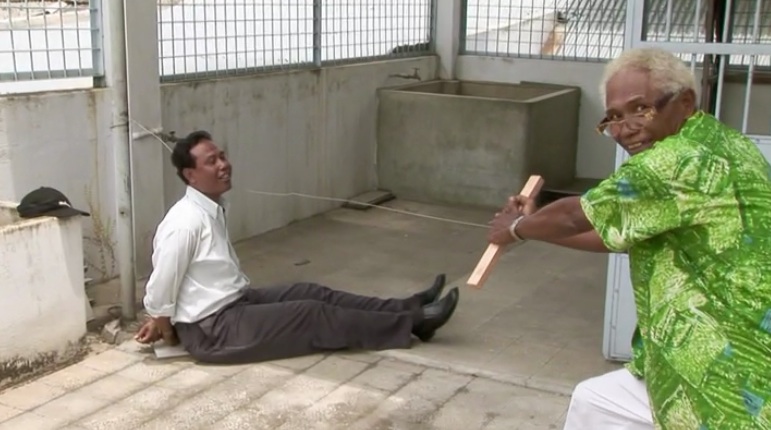
“Hang Me, Oh Hang Me,” Llewyn sings in the beginning, and for the rest of the movie the Coens come close to doing it. Do Llewyn’s travails make him a better performer? That would be the easy way out of the story. That’s what most Hollywood movies would do. Llewyn is on this odyssey, often with Ulysses the cat, and he comes back a wiser man, and that wisdom leads to success. That’s the lie Hollywood often tells us, because it’s the lie we often tell ourselves, because otherwise why all this? Why travails, and pain, and sorrow, if it doesn’t lead to something? But here Llewyn’s travails lead to Bob Dylan’s success.

3. LA GRAND BELLEZZA (THE GREAT BEAUTY)
Jep Gambardella (Toni Servillo), 65, wise in his age, bemused in his stance, idle with his time, is on a sort of search. He’s not searching for meaning so much as a reason to keep going. At one point he says, “I can’t waste any more time doing things I don’t want to do,” and this is just before he disappears rather than look at the naked photos of a beautiful woman, Orietta (Isabella Ferrari). So: high standards. At another point he sees a giraffe, a beautiful giraffe staring down from on high and surrounded by a half-circle of ancient Roman columns; and the two, Jep and the giraffe, stare at each other until Jep’s magician-friend arrives and explains the giraffe. It’s part of his act. He makes it disappear. And Jep leans close and asks, “Can you make me disappear?” That’s when we realize the extent of Jep’s ennui. He shows the world a bemused face, but inside, particularly in the morning light after another party, he’s desperate.
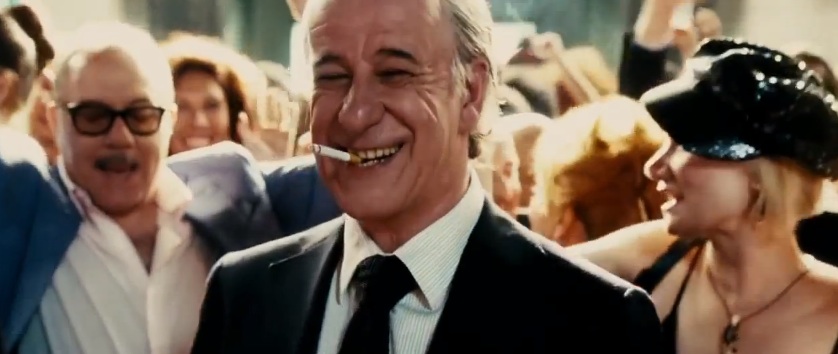
“American Hustle” earns the “American” in its title. It’s big, brassy, energetic, corrupt, and has great cleavage. It’s a movie that never sits still. It also earns the “Hustle” in its title. It’s about people hustling/striving to get ahead and people just hustling/conning everyone else. Usually the two go together. You’ll hear a lot about the acting, but it’s not in the weight Bale gained nor in his elaborate combover nor in Bradley Cooper’s perm. It’s in the eyes. The con, and then the concern, in Irving’s, the need in Richie’s, and the fear, the dizzying fear, in Sydney’s. It’s the death stare of Victor Tellegio, delivered as only De Niro can deliver it. It’s in the officious blankness in Stoddard Thorsen’s eyes. A small favorite moment: After all that Richie puts him through, there’s no vindictiveness in Stoddard’s eyes in the end. His eyes remain blank and officious. Like he’s simply wondering when he can go home.

There’s been controversy over the movie. The raunch. The debauch. The misogyny. One side says “Wolf of Wall Street“ glamourizes this life and makes a hero of its villain. The other side, including Leonardo DiCaprio, says, no, it’s an indictment of that life and that man. Well, it is and it isn’t. That’s why the movie’s great. Jordan Belfort is an ass but he’s also the American id, acting out, and stirring the suppressed id within each of us. The movie is both lesson and blueprint. It passes the test of a first-rate film: it holds two opposing ideas in its head at the same time and entertains. It informs us and challenges us. ”See, an IPO is an initial public offering, the first time ... You know what? You’re probably not following what I’m saying." That.
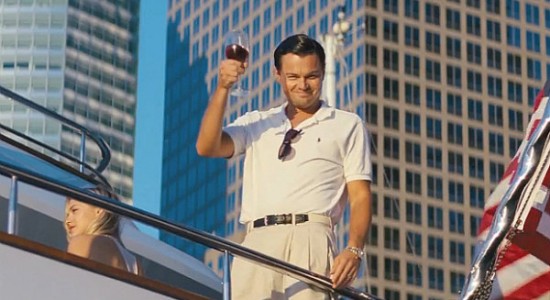
Honorable mentions: 12 Years a Slave, 20 Feet from Stardom, All Is Lost, Anchorman 2, Blackfish, The Bling Ring, Blue is the Warmest Color, Dallas Buyers Club, The Deep, The Gatekeepers, her, We Steal Secrets: The Story of WikiLeaks, The Trials of Muhammad Ali, The World’s End.
Movies I haven't seen yet but will soon: The Past, August: Osage County, The Hunt, The Grandmaster, Cutie and the Boxer, Frozen.
Until next year, kids.
Tuesday January 14, 2014
My Top 10 Movie Lines of 2013
One day I hope to do a better job of accumulating these lines during the course of the year rather than simply searching for them at the end. I always think I’m doing it. I think I’m putting them in a bin in my brain that says “Great Movie Quotes” but that bin—I’ve discovered—has a leak at the bottom. Like so many other bins in my brain. I go to it and it’s empty. So I search.
Let me know what I’ve missed.
10. “If you have $10 million, or if you have a billion dollars, why do you need that little bit that I have?”
— A Calpin geothermal plant worker in the Robert Reich documentary “Inequality for All.”
Reich’s doc is about the growing disparity between the rich and poor in the United States, about the 30-year class warfare waged by the rich on the poor. He’s actually more polite about it. Smarter, too. One of my favorite moments is when he breaks down where the money goes when someone buys an iPhone. You think it’s to the U.S., where Apple is headquartered, or China, where the iPhone is assembled, but nope. Try Germany and Japan, whose skilled workers make the iPhone's advanced components. The above line is one of the doc’s most poignant moments. The worker at the plant has had her pay cut by $12 an hour to increase the profits of the company that increase the pay of the CEOs and CFOs and MOFOs of the company, and this is her question. It deserves an answer.
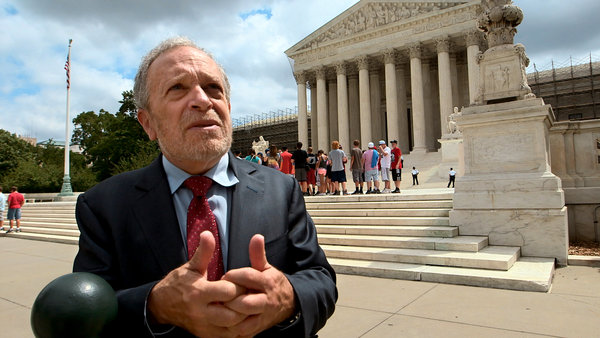
9. “Let’s boo boo.”
Various in “The World’s End.” Screenplay by Simon Pegg and Edgar Wright.
It's less the line than the derivation. Five mates, Gary, Andy, Steven, Peter and Oliver (Simon Pegg, Nick Frost, Paddy Considine, Eddie Marsan and Martin Freeman—helluva cast) reconnect for a pub crawl through their old hometown and discover that the place has been taken over by aliens. Right, but before that they use this leftover phrase from their school days. It means “Let’s go,” and it began when they studied Shakespeare’s “A Winter’s Tale” in school and laughed at the stage direction: “Exit, pursued by a bear.” That became “Exit with Yogi Bear” and eventually “Let’s boo boo.” All of which is so British and so pop-culturey and so smart. Put it this way: the characters in most Hollywood movies wish they had that kind of backstory.

8. “When you’re in love like that you become utterly selfish. Nothing that’s happening to anyone else matters at all ... ”
— Harry Gulkin in Sarah Polley’s documentary, “Stories We Tell.”
The selfishness of love is something we don’t talk about much in our love stories, but when I was young and in love I certainly felt it. It was like the rest of the world dropped away. Only she mattered. It was work to care about anything else. The man who says the above, Harry Gulkin, is a Canadian producer (“Lies My Father Told me”), whom director/actress Sarah Polley is interviewing as she sorts through the stories that make up her. And what makes up her in the end—or the beginning? The love Gulkin is describing, which was between Polley's mother and himself. Here's to selfishness.

7. “Black ... black ... black ...”
- Ron Burgundy (Will Ferrell) in “Anchorman 2: The Legend Continues.” Screenplay by Will Ferrell and Adam McKay.
The first half-hour of this movie had me breathless with laughter—dangerous in an asthmatic—and the above quote is an example. It’s 1980, and Ron Burgundy and company, new to New York and 24-hour cable news, meet their new boss at WGN, Linda Jackson (Meagan Good). Burgundy, flummoxed, as supremely awkward as only Will Ferrell can be, can’t get around the fact that she’s black, so can’t stop annunciating this fact. It’s the only word in his head so it keeps coming out of his mouth. It’s a Homer Simpson moment. It also feels exactly right. A post-racial America? Where we don’t see color? Sometimes it seems we only see color.

6. Philomena: Do you believe in God, Martin? Martin: Where do you start? I always thought that was a very difficult question to give a simple answer to ... Do you? Philomena: Yes.
--Philomena Lee (Judi Dench) and Martin Sexsmith (Steve Coogan) in “Philomena.” Screenplay by Steve Coogan and Jeff Pope, based upon the book by Martin Sexsmith.
The underrated “Philomena” has some of the best exchanges in movies this year (“Oh, it’s a series”), but I’ll go with this one because it crystalizes the difference between its two main characters. Not who does or doesn’t believe in God but how they express themselves. The uneducated Philomena is plainspoken, like my mother, while the overeducated Martin Sexsmith is, well, more like me. It's not often I see us onscreen.

5. “To choose is to commit yourself. And to commit yourself is to run the risk of failure, the risk of sin, the risk of betrayal. But Jesus can deal with all of those. Forgiveness he never denies us. The man who makes a mistake can repent. But the man who hesitates, who does nothing, who buries his talent in the earth, with him he can do nothing.”
— Father Quintana (Javier Bardem) in “To the Wonder.” Screenplay by Terrence Malick.
You’ve got to give Terrence Malick credit. Most dramatists spend their days figuring out ways to keep the lovers apart (so they can have a “happily ever after”), while Malick, the masochist, actually begins with the “happily ever after,” in Paris no less, then takes us through the long slog downward. Too bad the movie is a disappointment—Malick's first. He gave us too much of the couple. I wish he’d focused more on Father Quintana, who was going through a spiritual crisis, and who actually had something to say.

4. “We have to show ... this is who we are. So in the future people will remember.”
— Anwar Congo in Joshua Oppenheimer’s documentary, “The Act of Killing.”
Anwar Congo is a grandfather, a national hero, and a death-squad leader responsible for the torture and murder of thousands, maybe tens of thousands, after a military coup in Indonesia in 1965. The people he helped stay in power are still in power so there hasn’t been a lot of soul searching, national or personal, since. Then Joshua Oppenheimer, a Brit-American by way of Texas and Copenhagen, arrives. Congo and his friends aren’t shy about what they’ve done. The opposite. Didn’t they save the country? From communists? And aren’t they beloved as a result? And aren’t they being filmed now? So aren’t they like the Hollywood heroes they've always loved? Oppenheimer gets the men to not only talk about their crimes but reenact them for the camera, which is when interesting things begin to happen. The above line is spoken early but even then it’s steeped in irony.

3. “See, an IPO is an initial public offering, the first time a stock is offered for sale to the general population. As the firm taking the company public, we set the initial price then sold those shares back to .... You know what? You’re probably not following what I’m saying.”
--Jordan Belfort (Leonardo DiCaprio) in “The Wolf of Wall Street.” Screenplay by Terrence Winter.
How will America end? Not with “1984” but with “Brave New World.” That’s what this line means. We are amusing ourselves to death and we can’t be bothered with anything too difficult. IPOs? We don’t want to hear talk about that. If we did, there might have been no global financial meltdown. That was on us. Still is. I know a lot of smart people who object to the way director Martin Scorsese and screenwriter Terrence Winter rub our faces in all this but I feel the opposite. I feel when you get an American audience together, who have been so pandered to for so long, why not rub their faces in it? You might even wake them up a little.

2. “You’re 53, with a life in tatters like the rest of us. Instead of acting superior and treating us with contempt, you should look at us with affection. We’re all on the brink of despair. All we can do is look each other in the face, keep each other company, joke a little. Don’t you agree?”
— Jep Gambardella (Toni Servillo) in “La grande bellezza” (“The Great Beauty”). Screenplay by Paolo Sorrentino and Umberto Contrarello.
Jep says this to Stefania (Galatea Ranzi, bottom right) on his terrace overlooking the Colosseum in Rome, so it’s hardly a life in tatters. Jep has friends, women, wine, but his life is still winding down and he never really did what he thought he would do with it. “Everyone dies frustrated and sad,” They Might Giants once sang, “and that is beautiful.” Jep, throughout this beautiful movie, is trying to see the beauty rather than the frustration and sadness. Sometimes he does. Later, he and Stefania dance and he asks if they've ever slept together. “Of course not,” she responds. “That’s a big mistake,” he says. “We must make amends immediately.” Yeah, that one almost made the list as well.

1. “I have written in sand.”
— Torgny Segerstedt (Jesper Christensen) in “The Last Sentence” (“Dom Över Död Man”). Screenplay by Klaus Rifbjerg and Jan Troell, from the book by Kenne Fant.
I know: The line’s almost a cliché. But in this 2012 biopic of Swedish journalist Torgny Segerstedt (Jesper Christensen), the editor-in-chief of Göteborgs Handels- och Sjöfartstidning, who was one of the strongest, most strident, and earliest voices against Adolf Hitler and Nazi Germany, the line hit home. Segerstedt, by the way, may know about Fascism but that doesn’t make him a nice guy. There’s something severe in his manner, and he’s awful to his wife, conducting, as he does, an affair with his female publisher in plain view. But he’s uncompromising in a way the rest of Europe, sadly, was not. Still, at the end of his life, even as the Allies begin to sweep the Nazis out of Europe, it all feels rather purposeless. The thousands of articles he wrote ... to what end? The Nazis still came. Europe still fell. He's still dying. “How quickly it passed,” he says. “I have written in sand,” he says. Last year's favorite line was about confronting an Ozymandias figure. This one is about realizing we're all Ozymandias.

Until next year.
All previous entries
Baseball's Active Leaders, 2023
What Trump Said When About COVID
Recent Reviews
Everything Everywhere All at Once (2022)
Black Panther: Wakanda Forever (2022)
Doctor Strange in the Multiverse of Madness (2022)
Spider-Man: No Way Home (2021)
The Cagneys
A Midsummer Night's Dream (1935)
Something to Sing About (1937)
Angels with Dirty Faces (1938)
A Lion Is In the Streets (1953)
Man of a Thousand Faces (1957)
Never Steal Anything Small (1959)
Shake Hands With the Devil (1959)








